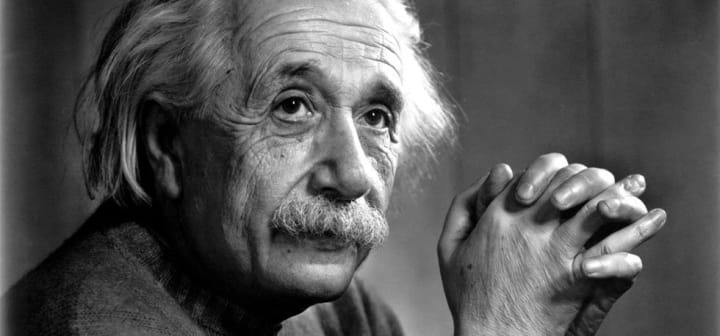Albert Einstein
Albert Einstein: The Life and Achievements of a Scientific Genius

Albert Einstein is widely considered to be one of the greatest minds in the history of science. His contributions to the field of theoretical physics revolutionized our understanding of the universe and paved the way for countless scientific advancements. In this article, we will explore Einstein's life and achievements, from his early years in Germany to his groundbreaking discoveries in the field of physics.
Early Life and Education
Albert Einstein was born in Ulm, Germany, on March 14, 1879, to Hermann and Pauline Einstein. His family was Jewish and had modest means, but they valued education and encouraged young Albert to pursue his intellectual interests. At an early age, Einstein showed an aptitude for math and science, and he was always eager to learn more.
Einstein's family moved to Munich when he was six years old, and he continued to excel academically. However, he was not a conventional student and often clashed with his teachers. He preferred to learn at his own pace and was uninterested in memorization or rote learning.
In 1894, Einstein's family moved to Italy, and he remained in Germany to finish school. He struggled to find a job after graduation, but eventually secured a position as a clerk at the Swiss Patent Office in Bern. It was during this time that Einstein began to develop his ideas about physics, which would eventually lead to his groundbreaking discoveries.
The Theory of Special Relativity
In 1905, Einstein published a series of papers that would change the course of physics. One of these papers was the theory of special relativity, which posits that the laws of physics are the same for all non-accelerating observers, regardless of their relative motion. This theory overturned Newtonian physics and led to new discoveries about space, time, and the nature of light.

Einstein's work on special relativity was met with skepticism at first, but eventually, it gained widespread acceptance. He continued to refine his ideas over the next decade, publishing papers on topics like the photoelectric effect and the theory of general relativity.
The Theory of General Relativity
In 1915, Einstein published the theory of general relativity, which revolutionized our understanding of gravity. This theory posits that gravity is not a force, as Newtonian physics had suggested, but rather a curvature of space-time caused by the presence of mass and energy. General relativity also predicted the existence of black holes and gravitational waves, which were later confirmed by observations.
Einstein's work on general relativity solidified his reputation as one of the most brilliant minds in physics. He continued to make important contributions to the field over the next few decades, but he also became increasingly involved in social and political causes.
Later Years and Legacy
In the 1930s, Einstein became increasingly concerned about the rise of fascism in Europe, and he spoke out against it publicly. He emigrated to the United States in 1933 and became a professor at the Institute for Advanced Study in Princeton, New Jersey. He also worked on the Manhattan Project, which developed the first nuclear weapons.
After World War II, Einstein became an advocate for peace and nuclear disarmament. He continued to work on physics, but he also spoke out about issues like civil rights and the dangers of nuclear war. He died on April 18, 1955, but his legacy lives on.
Einstein's contributions to physics have been immeasurable, and his ideas have had a profound impact on our understanding of the universe. He was a scientific genius, but he was also a human being who cared deeply about the world around him. His life and achievements serve as an inspiration to us all, and his legacy will continue to shape the future of science for generations to come.
Einstein's legacy extends far beyond the field of physics. His work inspired countless scientists and helped shape our understanding of the world around us. He also had a profound impact on popular culture, with his iconic image and famous equation, E=mc², appearing in everything from t-shirts to movies.
In addition to his scientific achievements, Einstein was also known for his wit and humor. He was famous for his quirky habits, such as never wearing socks and playing the violin to relax. He also had a deep love for nature and spent much of his free time hiking and sailing.
In conclusion, Albert Einstein's life and achievements are a testament to the power of human curiosity and the pursuit of knowledge. His groundbreaking discoveries changed the course of physics and continue to inspire new scientific advancements today. But Einstein was more than just a scientific genius - he was a complex and multifaceted human being who cared deeply about the world and the people in it. His legacy will continue to inspire and captivate us for years to come.
About the Creator
Mahammad Azmal
Explore the lives of history's most influential figures on my channel! From scientists to leaders, discover the stories of famous individuals who shaped our world. Subscribe now!






Comments
There are no comments for this story
Be the first to respond and start the conversation.